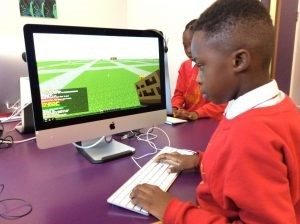 At Cathedral School we want children to engage with Geography. We want them to see its relevance to their lives and to see the Earth as their home. We promote an enquiry-based approach through fieldwork and high quality resources.
At Cathedral School we want children to engage with Geography. We want them to see its relevance to their lives and to see the Earth as their home. We promote an enquiry-based approach through fieldwork and high quality resources.
Children understand the way that Geography helps explain and inspire their curiosity about the earth. We aim to teach then to think geographically and use the language, vocabulary and grammar of geography with confidence. We want them to investigate and explore geography by asking questions and thinking critically about real life issues, drawing on other subjects such as maths, science and literacy.
The Geography Curriculum can be found here: Geography Curriculum
Here are just some of our experiences of learning Geography at Cathedral School:
 City planning and mapping:
City planning and mapping:
Class 4 had a wonderful experience at the CLC centre in Clapham. The class enthusiastically explored Minecraft! The children had to think about what buildings are needed in a city and how important consideration of the infrastructure of a city is.
The children then had to develop their own buildings and place them in their very own Class 4 city. We were able to link to this different subjects such as maths, using co-ordinates to locate and position the buildings.
Considering human and physical geography
We took our ‘Flat Stanleys’ on a trip around the school to see the sights and took some photos to send in Stanley’s envelope. We all wrote letters asking questions about the visit to Finland, and didn’t forget to include Stanley’s packed lunch. We are hoping our ‘Stanleys’ arrive safely in Finland and will wait for a reply from the children there.
Mapwork
This half term in Geography we are looking at our local area and this week, Class 1 used maps and globes to locate England and other countries. During our Geography sessions this week we spoke about the location of countries around the world, some children found countries that they have visited and we labelled our own maps of the UK.
The geography of different places in the EYFS
This half term we are learning about different places to explore such as space, forests, jungles, the Arctic, the seaside and the desert. To help us, our new role play areas are camping in the forest and a space station.
Mapping and human geography through a text:
Class four have been working hard on learning all the features of non-fiction texts this week. We have focused on the use of non-fiction literary features, such as: clear presentation, headings, use of bullet points and informative short facts. We are working towards writing our very own version of A Walk in London.
A high-quality geography education should inspire in pupils a curiosity and fascination about the world and its people that will remain with them for the rest of their lives. Teaching should equip pupils with knowledge about diverse places, people, resources and natural and human environments, together with a deep understanding of the Earth’s key physical and human processes. As pupils progress, their growing knowledge about the world should help them to deepen their understanding of the interaction between physical and human processes, and of the formation and use of landscapes and environments. Geographical knowledge, understanding and skills provide the frameworks and approaches that explain how the Earth’s features at different scales are shaped, interconnected and change over time.
Aims
The national curriculum for geography aims to ensure that all pupils:
- develop contextual knowledge of the location of globally significant places – both terrestrial and marine – including their defining physical and human characteristics and how these provide a geographical context for understanding the actions of processes
- understand the processes that give rise to key physical and human geographical features of the world, how these are interdependent and how they bring about spatial variation and change over time
- are competent in the geographical skills needed to:
- collect, analyse and communicate with a range of data gathered through experiences of fieldwork that deepen their understanding of geographical processes
- interpret a range of sources of geographical information, including maps, diagrams, globes, aerial photographs and Geographical Information Systems (GIS)
- communicate geographical information in a variety of ways, including through maps, numerical and quantitative skills and writing at length.
